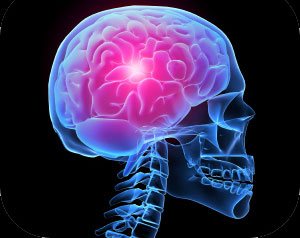Voice of Patients
Leg pain, migraine, breathlessness
I got admitted with pain in legs; cough; migraine; breathlessness; and as nails were growing very fa...

A migraine headache is a form of vascular headache. Migraine headache is caused by vasodilatation (enlargement of blood vessels) that causes the release of chemicals from nerve fibers that coil around the large arteries of the brain. It is a debilitating condition characterized by moderate to severe headaches, and nausea,
about 3 times more common in women than in men. The typical migraine headache is unilateral pain (affecting one half of the head) and pulsating in nature, lasting from 4 to 72 hours. The cause of migraines is unknown. Triggers—A minority of migraines maybe induced by triggers. The most common triggers quoted are stress, hunger, and fatigue; however, these equally contribute to tension headaches. Treatment for migraines varies depending on the frequency and severity of the headaches. It may include lifestyle modifications, such as identifying and managing triggers, as well as medication to alleviate acute migraine symptoms or prevent future attacks.
Symptoms include nausea, vomiting, photophobia (increased sensitivity to light), phonophobia (increased sensitivity to sound), and is aggravated by routine activity. The severity of the pain, duration of the headache, and frequency of attacks is variable.
There are four possible phases to a migraine attack. They are listed below—not all the phases are necessarily experienced. Additionally, the phases experienced, and the symptoms experienced during them can vary from one migraine attack to another in the same person:
1. The prodrome, which occurs hours or days before the headache
2. The aura, which immediately precedes the headache. Approximately one-third of people who suffer from migraine headaches perceive an aura—unusual visual, olfactory, or other sensory experiences that are a sign that the migraine will soon occur.
3. The pain phase, also known as headache phase.
4. The postdrome
(Ref: https://en.wikipedia.org/wiki/Migraine)
Lack of sleep, skipping meals, drinking alcohol, excessive exercise or too little physical activity, stress, travel, smoking, overweight. The highest incidence is in teenage years. Migraine headaches are more common among females—with a 3:1 female to male ratio.
Migraines seem to run in families. Approximately 90% of migraine patients have a positive family history. Migraines may be triggered by the blood vessels overreacting to a variety of factors, including menstruation, fatigue, changes in altitude, weather, or time zone, glaring lights, perfumes or other odors.
There is no specific test to prove that your headache is actually a migraine. However, your doctor may order a brain MRI or CT scan if you have never had one before or if you have unusual symptoms with your migraine, including weakness, memory problems, or loss of alertness.
Ardhavabhedhaka is termed as half headache where the tridosha vitiate and affects the half part of the head and causes different types of pain – pricking, cutting, stabbing, tearing, burning for a short duration and reoccur in 3-5-10-15-30 days. It associates with vertigo.
Suppression of natural urges, indulging in excessive exercise & sex, excessive intake of dry & rough food, fasting, exposure to fog or cold, talking loudly or irrelevantly. Due to all these causes, vata or vatakapha dosha vitiate, affects the Shiras, produces shirashoola in manya, shankha, lallata, bru, karna, netramandala, and finally causes blindness and deafness as complication.
Treatment principle includes Nidhana Parivarchana and Vata & vatakaphahara chikitsa – Shiroabhyanga, Snehapana, Swedha, ShroVasti, Virechana, Nasya, Vasti, Dhoomapana, Lepa, Sekha, Rakthamokshana, Agnikarma, Pranayama
1. Noticeable reduction in severity of the pain, duration of the headache, and frequency of attacks
2. No chance of recurrence
3. Complete relief in signs & symptoms mentioned above
*Outcome may vary from patient to patient
Ayurveda Parasurgery Autoimmune Disorders Blood Disorders Cardiology Dermatology Endocrinology Ear-Nose Throat-Mouth Elder-Care Gastrointestinal Gynaecology Integrative Oncology Infectious-Diseases Liver-Hepato-Biliary-Care Mental Health and De-addiction Male-Reproductive-Disorders Nephrology Neurological-Disorders Orthopaedic Disorders Ophthalmology Obstetrics-Integrative Preventive-Health-Wellbeing Pulmonology Pediatric-Development-Disorder Sleep-Disorders
Any use of this site constitutes your agreement to the Terms and Conditions, Privacy Policy and Cancellation and Refund Policy
©2025 AyurVAID Hospitals. All rights reserved.
Popular Searches: DiseasesTreatmentsDoctorsHospitalsWhole person careRefer a patientInsurance